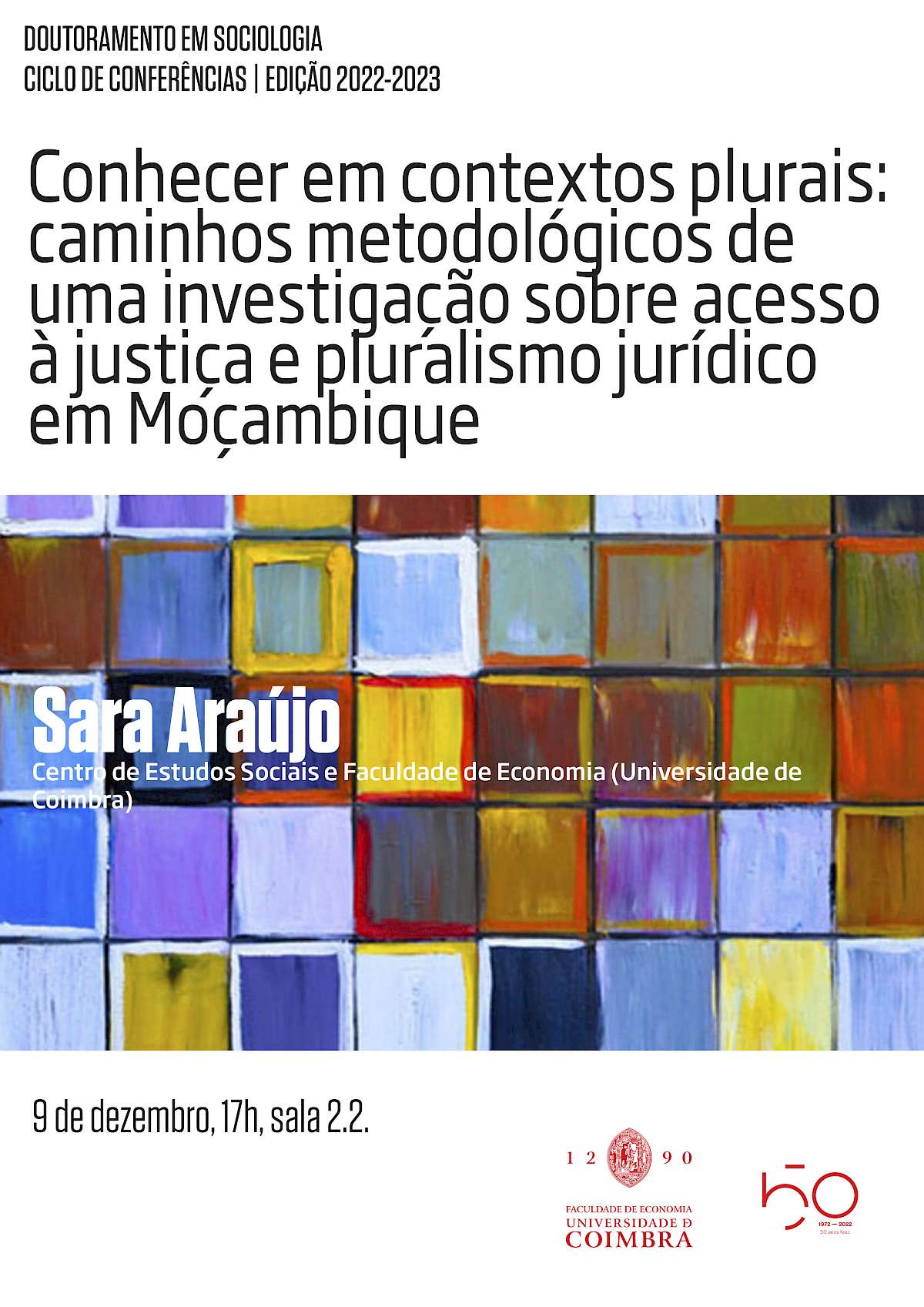
On December 9th, at 5 pm, there will be a Conference of the Doctorate in Sociology Conference Cycle (2022/2023 edition).
Sara Araújo, from the Center for Social Studies and the Faculty of Economics (University of Coimbra), is the guest lecturer who will address the theme “Knowing in plural contexts: methodological paths of research on access to justice and legal pluralism in Mozambique”.
Biographical note:
Sara Araújo is a researcher at the Center for Social Studies at the University of Coimbra and an invited assistant professor at the Faculty of Economics at the same university. She received a doctorate in "Law, Justice and Citizenship in the 21st Century", with a thesis on legal pluralism and Southern Epistemologies. She is co-coordinator of the Doctoral Program in "Sociology of the State, law and justice" and co-ordinated 4 editions of the Summer School of Epistemologies of the South (2016 to 2019). She was part of the coordination team of the Alice-Espelhos Estranhos Lições Imprevistas Project (B. S. Santos ERC Advanced Grant), today transformed into the Research Program in Epistemologies of the South. She belonged to the Permanent Observatory of Portuguese Justice (2003-2005), still maintaining collaboration links, namely in the scope of research and training activities (UNIFOJ). She was a member of the binational team for the reform of justice in Mozambique (2003-2004), was a member of the team of researchers at the Center for Juridical and Judiciary Training in Mozambique (2005-2006) and an associate researcher at the Center for African Studies at Eduardo University Mondlane (2008-2010). She recently participated in a Diagnostic Study of Justice in Timor-Leste and was a researcher for the European project ETHOS-Towards a European THeory Of juStice and fairnes. She co-edited the book The dynamics of legal pluralism in Mozambique (2014) and published chapters and scientific articles on legal pluralism in Mozambique and Timor-Leste, Epistemologies of the South and decolonization of the State and the law. She has produced scientific reports with peer review and international dissemination. She invested in communication beyond the academic public, namely through audiovisual means. She has empirical work experience in both urban and rural contexts; in Portugal, Mozambique and Timor-Leste. Her most recent scientific work involves a comparative dimension between EU member states and Turkey. It organized a large number of scientific events and, as part of the challenges posed by the Epistemologies of the South proposal, it developed multiple activities that combine science, art and knowledge born out of social struggles (concerts, concert-conferences, knowledge ecology stages, performances, exhibitions, UPMS workshops, forums, Paulo Freire tents, among others). Her research interests include legal pluralism and the state, access to justice, Southern epistemologies, and non-extractivist methodologies. In 2008, she received the Agostinho da Silva prize, awarded by the Lisbon Academy of Sciences.
